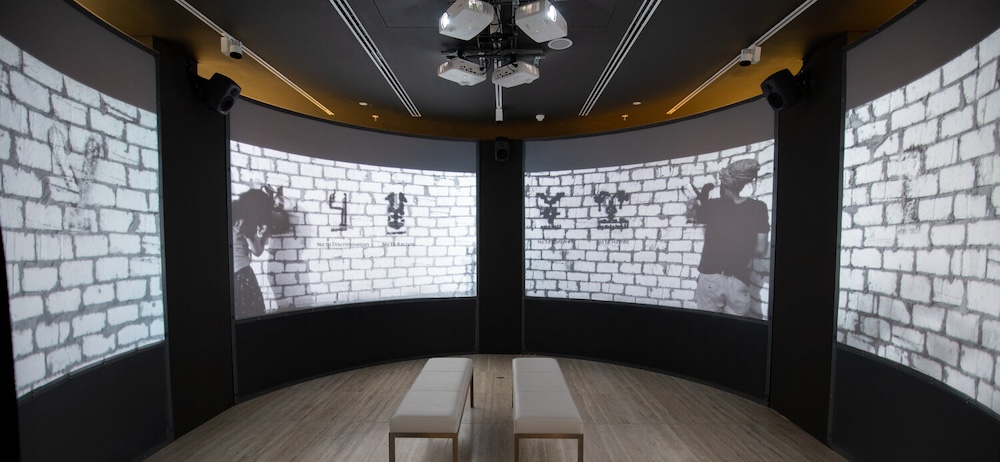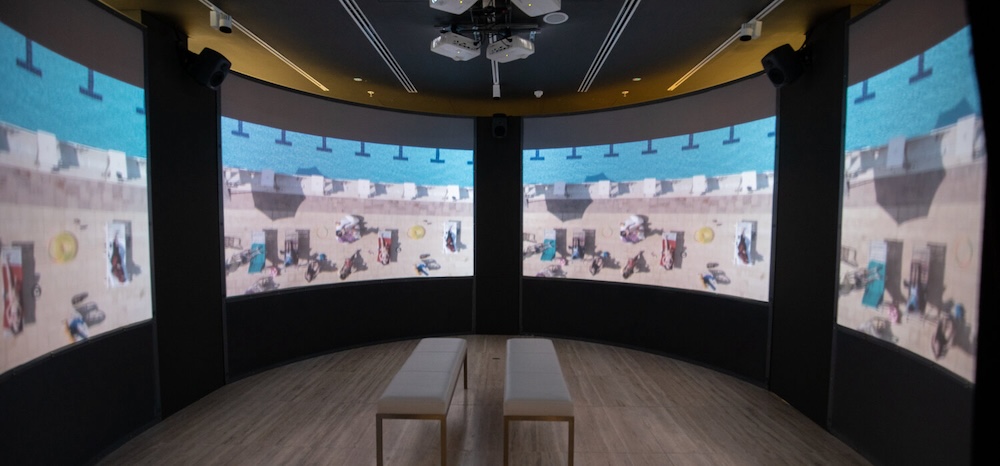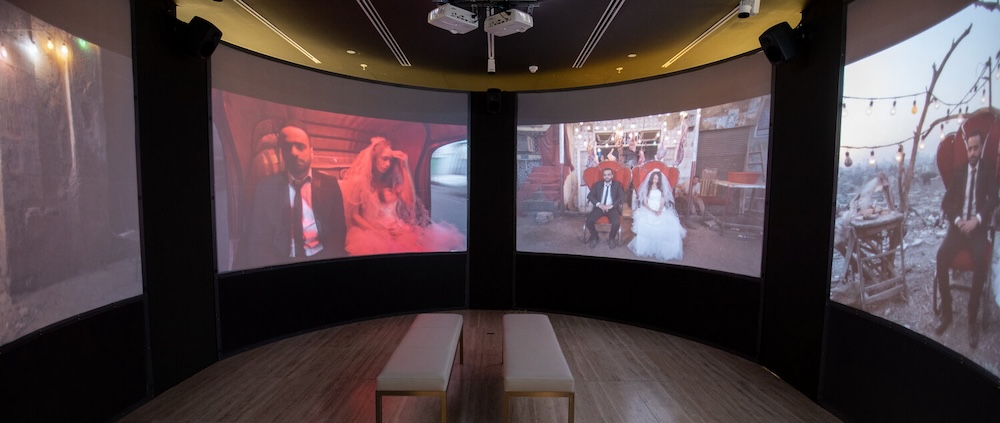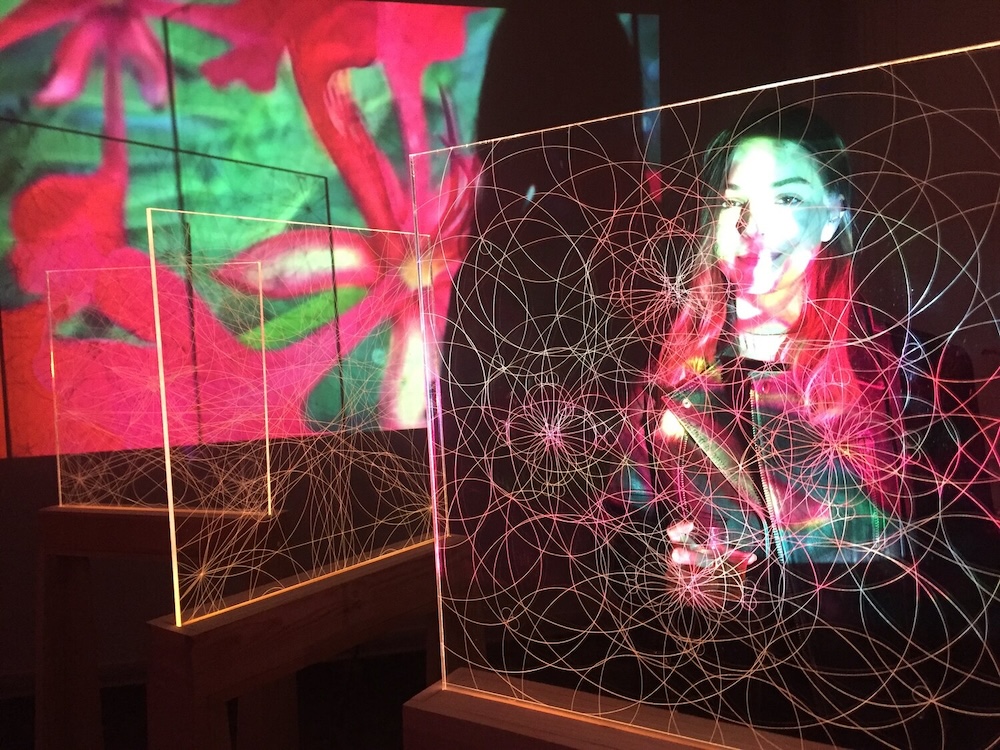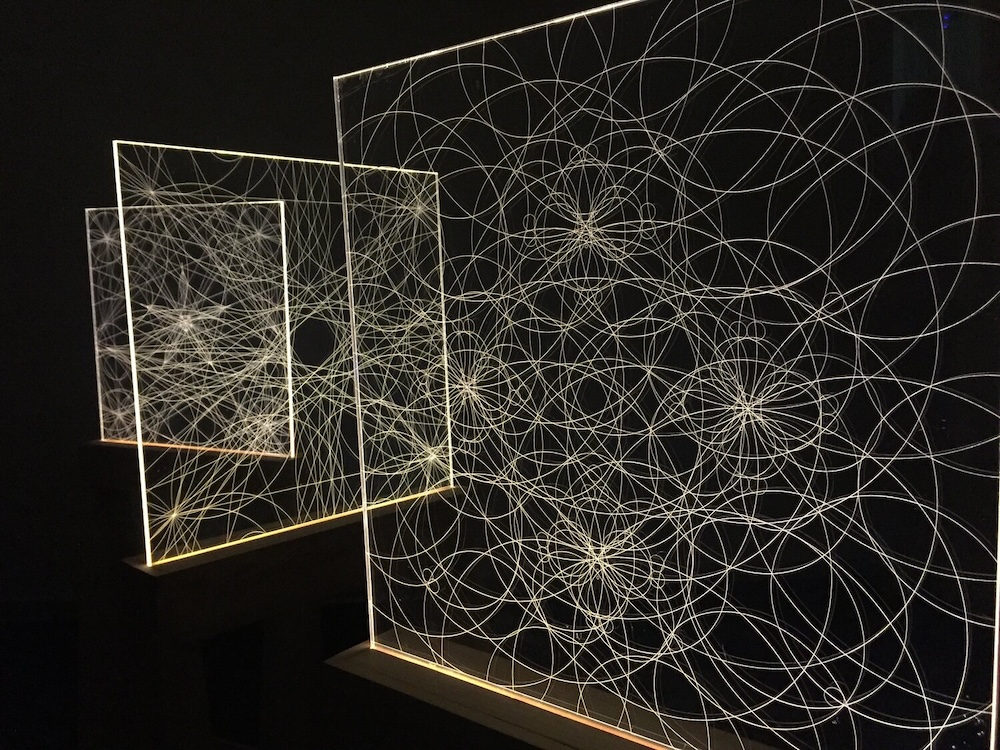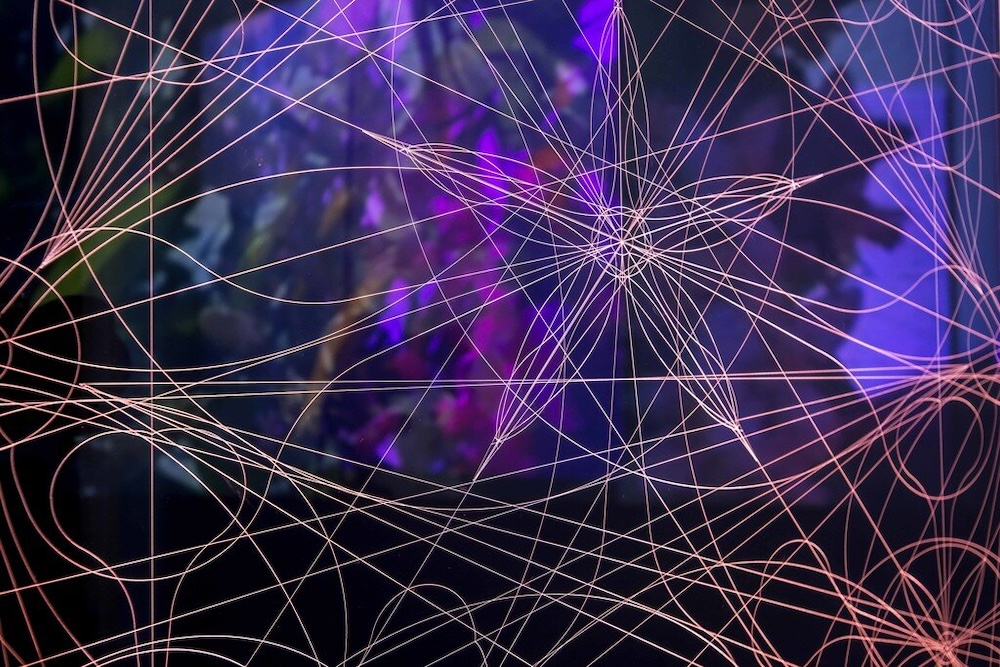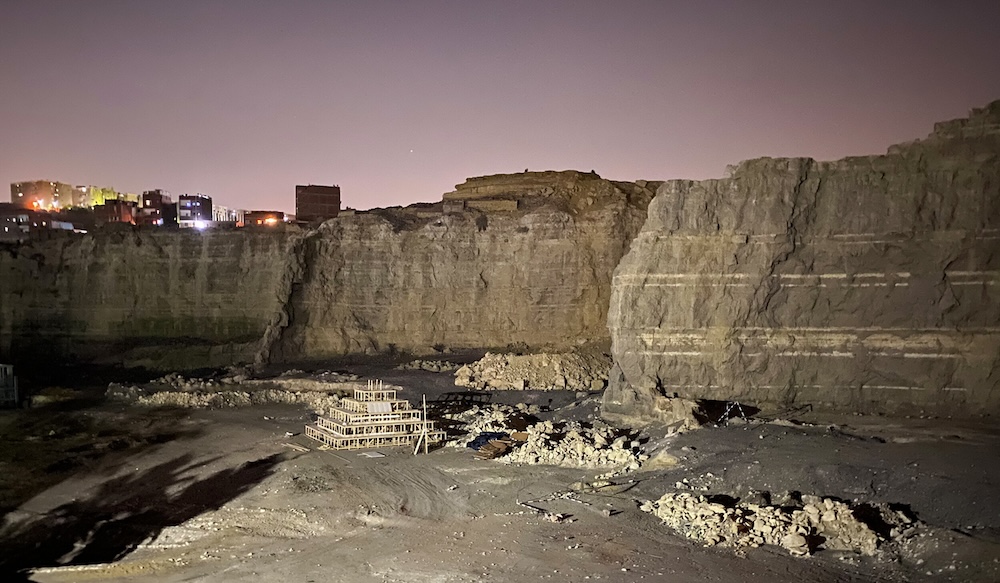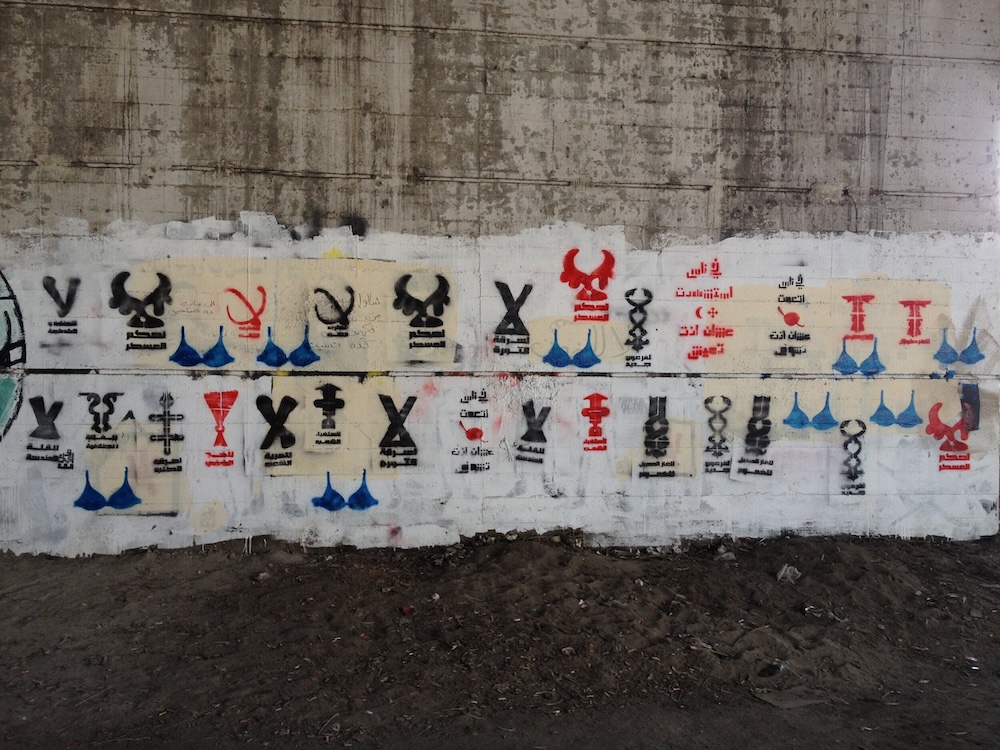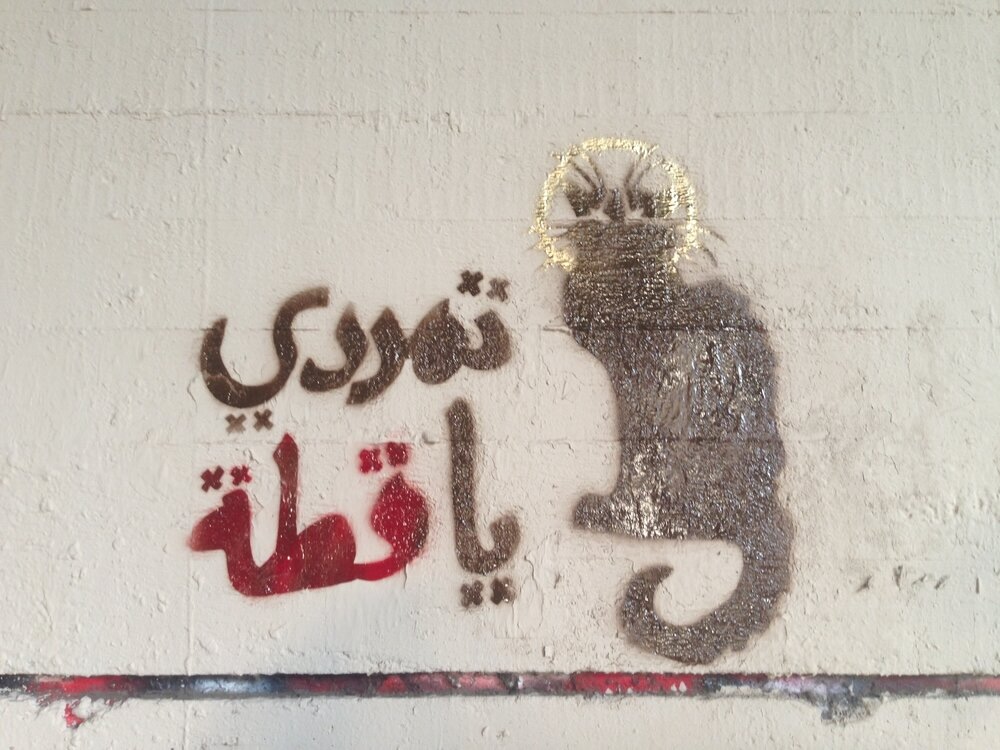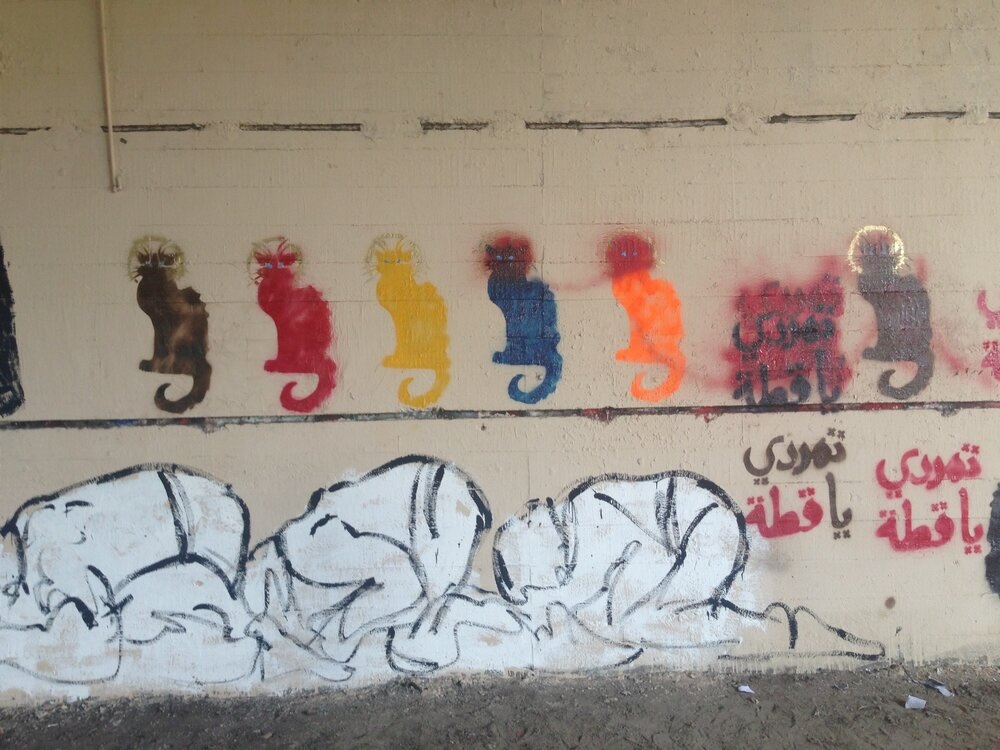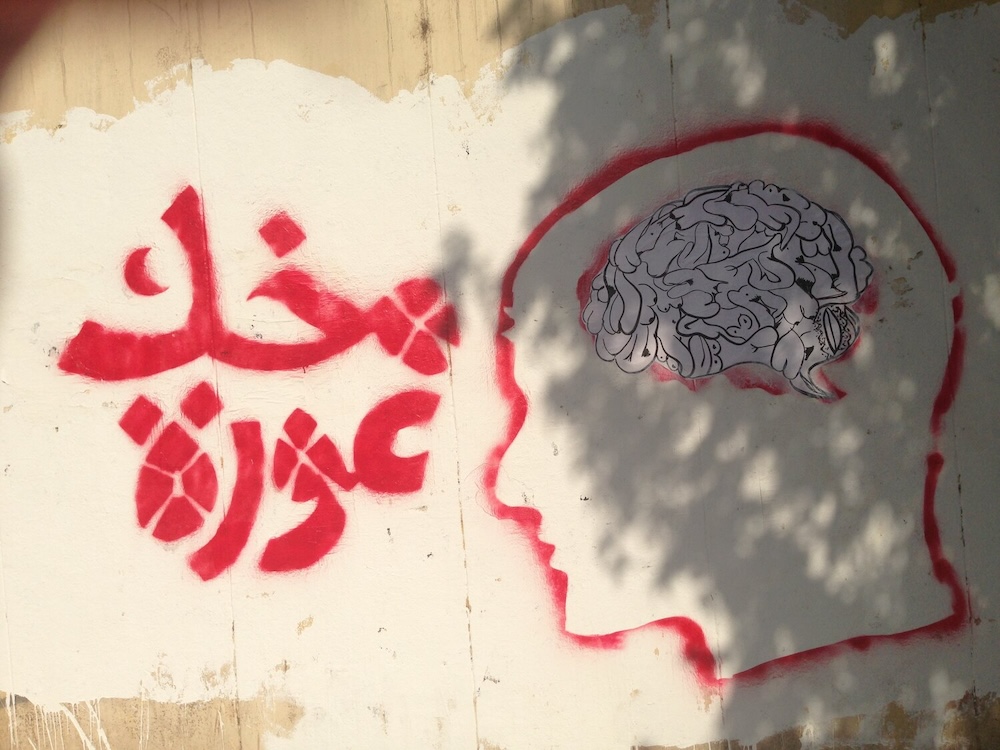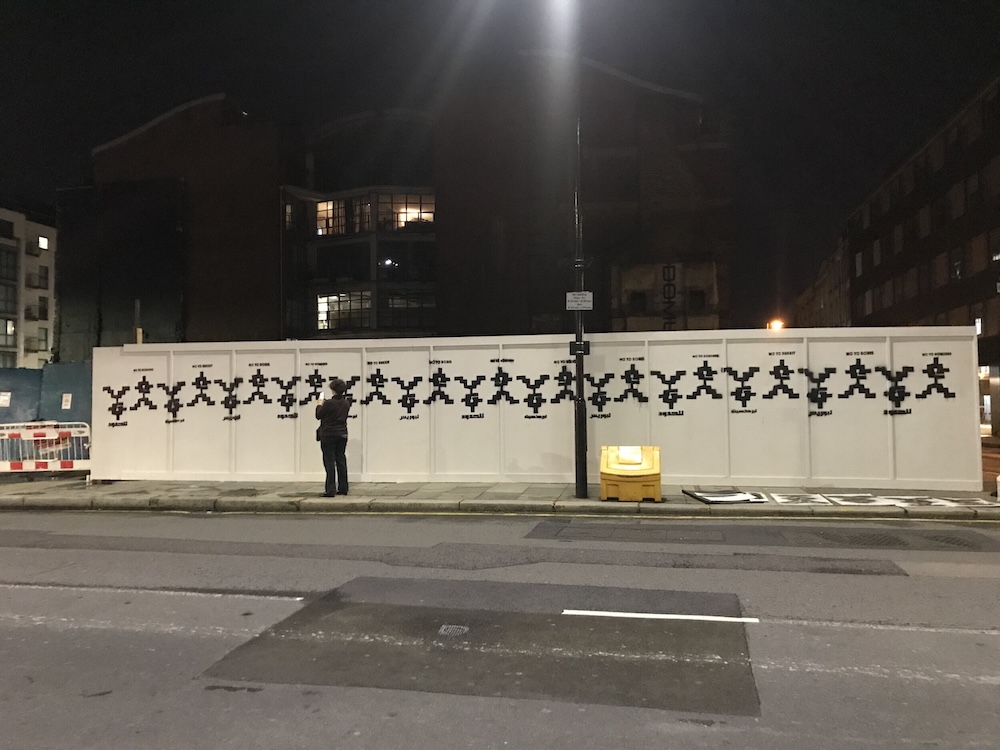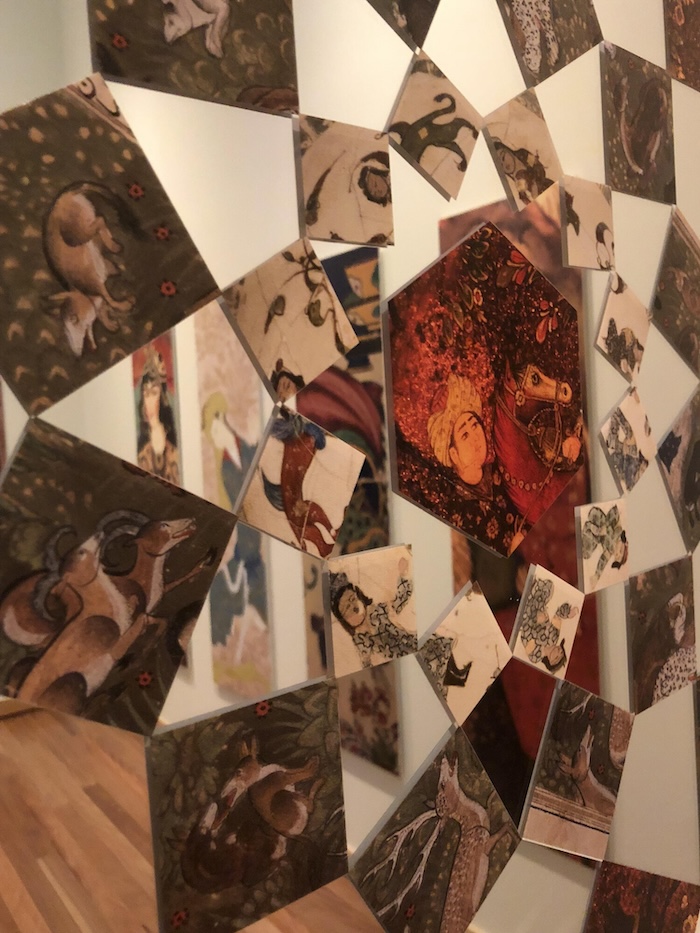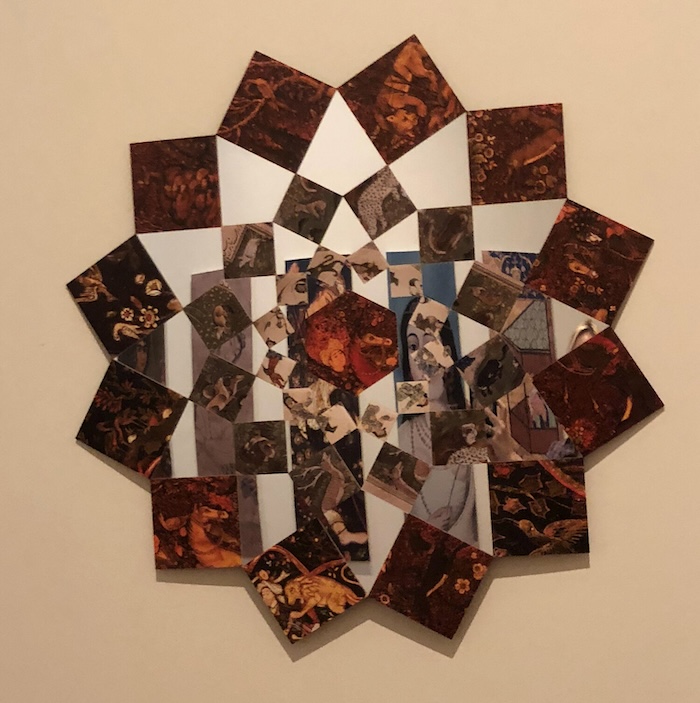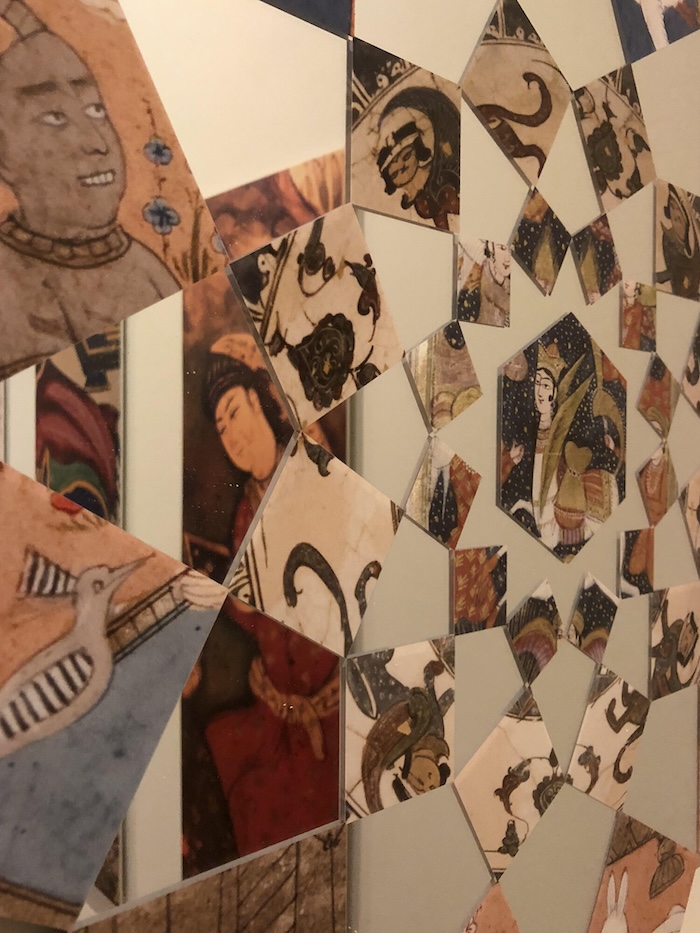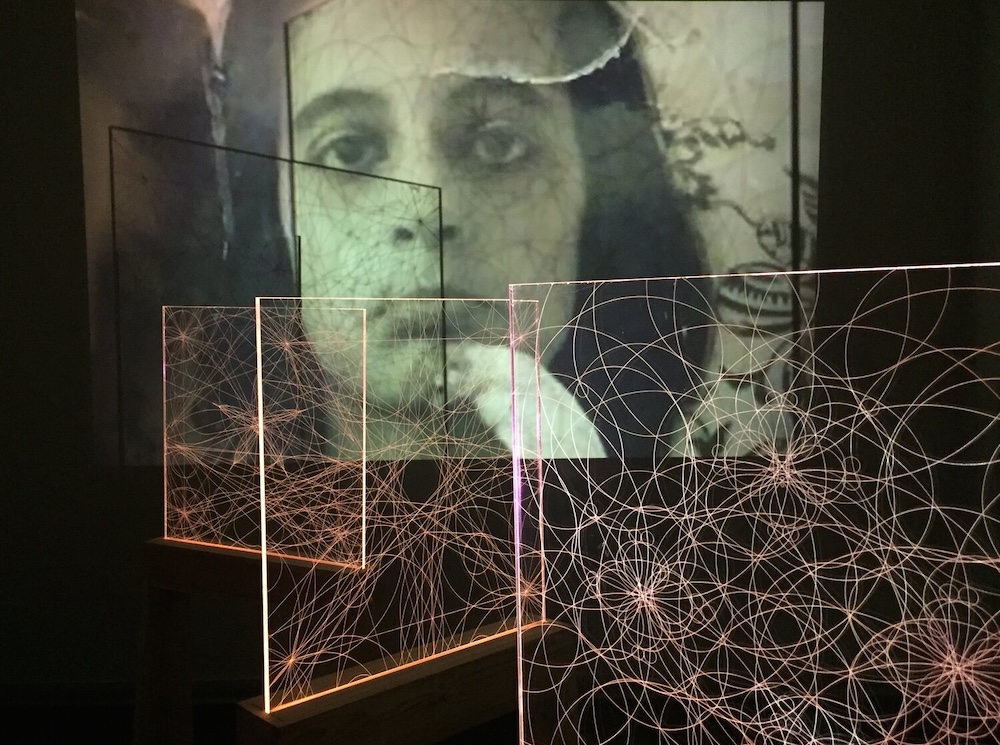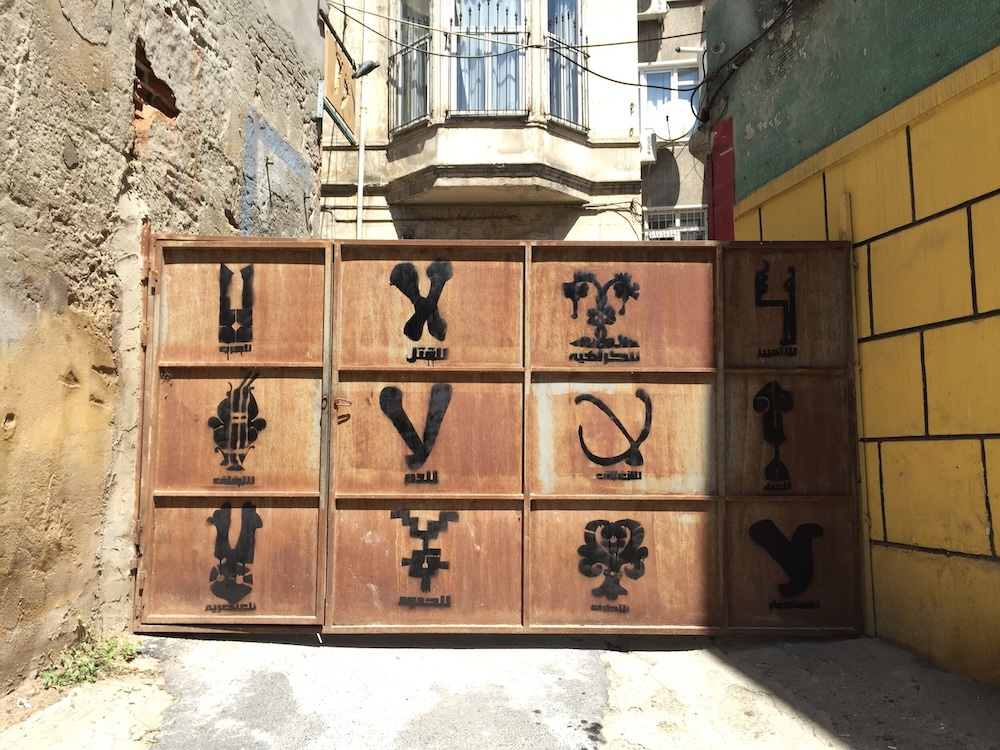We continue to look at the 2024 Nuart Aberdeen roster through our A Portfolio section on the site, today we look at the works of Cairo, Egypt-based artist and speaker, Bahia Shehab. The artist works in film, stencil street art, installation, murals and public projects.
She is a Professor of Design and founder of the graphic design program at The American University in Cairo where she developed a full design curriculum focused on the visual culture of the Arab world. She frequently lectures internationally on Arab visual culture and design education, peaceful protest, and Islamic cultural heritage. Her work is concerned with identity and preserving cultural heritage. Through investigating Islamic art history she reinterprets contemporary Arab politics, feminist discourse and social issues. Her artwork has been on display in exhibitions, galleries and streets in over 26 cities internationally. The documentary Nefertiti’s Daughters featuring her street artwork during the Egyptian uprising was released in 2015. Her work has received a number of international recognitions and awards which include a TED Senior fellowship, the BBC 100 Women list and a Prince Claus Award. She is the first Arab woman to receive the UNESCO-Sharjah Prize for Arab Culture. Shehab holds a PhD from Leiden University in The Netherlands and is the founding director of Type Lab@AUC. Her publications include You Can Crush the Flowers: A Visual Memoir of the Egyptian Revolution, At The Corner of a Dream, A Thousand Times NO: The Visual History of Lam-Alif and the award-winning co-authored book A History of Arab Graphic Design.
Bahia Shehab is a multidisciplinary artist, designer, political activist and historian whose work focuses on the interaction and intersection of modern identity and ancient cultural heritage. Her imaginative combination of calligraphy and Islamic art history produced cutting edge, beautiful, impactful street art during the Arab Spring and continues to inform her work as an educator and designer.
Having always been concerned with identity and preserving cultural heritage, she investigates art history to reinterpret contemporary Arab politics, feminist discourse and social issues. Her culturally oriented work enables her to use history as a means to better understand the present and find solutions for the future.
Bahia believes that art may be employed for the purposes of social change and has explored this phenomenon through her artwork, which focuses on socially charged themes such as the Arab identity and women's rights. Her research is largely concerned with understanding the Arabic letters and has been preoccupied with Arabic calligraphy in much of her work. Her work has been displayed in exhibitions around the world and she has received several awards and recognition for her achievements.


